

Tao Te Ching
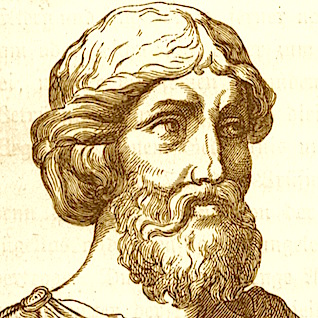
Epicurus ɛpɪˈkjɔːrəs
341 – 270 BCE
Western Buddha
Author of 300 lost books, a huge influence on western philosophy through Schopenhauer, Nietzsche, Karl Marx, David Hume, and inspiration for Thomas Jefferson’s “all men are created equal and endowed with certain unalienable rights, such as life, liberty, and the pursuit of happiness;” Epicurus blended the wisdom of pleasure with the pleasure of wisdom (Durant) and fostered equality and freedom welcoming into his school without prejudice slaves, different races, women, and courtesans. “Unsurpassably kind” to everyone, with many parallels to Lao Tzu, Epicurus taught that the purpose of philosophy is to free us from fear and suffering, to guide us to happiness.
Lineages
Apostles of Doubt Cynicism Epicureanism Greek Taoist
Eras
Western
Egyptian Civilization (3150 – 305 BCE)Greek Civilization (480 – 146 BCE)
The Axial Age, “The Great Leap of Being” (800 – 200 BCE)
Sources
Unlisted Sources
Fragments, Vatican Collection
On Goals
Principle Doctrines
Quotes by Epicurus (28 quotes)
“The art of living well and the art of dying well are one.”
from On Nature
Chapters:
52. Cultivating the Changeless
Comments: Click to comment
“We cannot enjoy full happiness, untroubled by suffering unless we realize the nature of things.”
from On Nature
Chapters:
3. Weak Wishes, Strong Bones
Comments: Click to comment
“Against other things it is possible to obtain security, but when it comes to death we human beings all live in an unwalled city.”
from On Nature
Comments: Click to comment
“There is nothing terrible in life for the man who has truly comprehended that there is nothing terrible in not living.”
from On Nature
Chapters:
50. Claws and Swords
Comments: Click to comment
“We should look for someone to eat and drink with before looking for something to eat and drink.”
from On Nature
Chapters:
35. The Power of Goodness
Comments: Click to comment
“The fool’s life is empty of gratitude and full of fears.”
from On Nature
Chapters:
15. Inscrutability
Comments: Click to comment
“Vain is the word of a philosopher which does not heal any human suffering. Just as there is no profit in medicine if it does not cure a disease of the body, to there is no profit in philosophy if it does not cure suffering of the mind.”
from On Nature
Chapters:
67. Three Treasures
Comments: Click to comment
“When happiness is present, we have everything; but when it is absent, we do everything to possess it.”
from On Nature
Chapters:
72. Helpful Fear
Comments: Click to comment
“He who is not satisfied with a little, is satisfied with nothing.”
from On Nature
Chapters:
75. Greed
Comments: Click to comment
“I have never wished to cater to the crowd; for what I know they do not approve, and what they approve I do not know.”
from On Nature
Chapters:
41. Distilled Life
Comments: Click to comment
“Death does not concern us, because as long as we exist, death is not here. And when it does come, we no longer exist”
from On Nature
Chapters:
39. Oneness
Comments: Click to comment
“Don’t spoil what you have by desiring what you don’t. Remember that what you now have was once among the things you only hoped for.”
from On Nature
Chapters:
9. Know When to Stop
Comments: Click to comment
“Of all the things that wisdom provides for the happiness of the whole life, by far the most important is friendship... the chief concerns of the right-minded person are wisdom and friendship of which the former is a mortal benefit, the latter an immortal one.”
from Maxims
Comments: Click to comment
“Everything natural is easily procured, and only the useless is costly.”
from On Nature
Chapters:
3. Weak Wishes, Strong Bones
Comments: Click to comment
“The gods are not to be feared; death cannot be felt; the good can be won; all that we dread can be conquered.”
from On Nature
Chapters:
15. Inscrutability
Comments: Click to comment
“If suffering is slight, disregard it; if great, it won’t last long.”
from On Nature
Comments: Click to comment
“Death is nothing to us; for that which is dissolved is devoid of sensation, and that which is devoid of sensation is nothing to us.”
from Maxims
Comments: Click to comment
“The wise man is but little favored by fortune; but his reason procures him the greatest and most valuable goods, and these he does enjoy, and will enjoy the whole of his life.”
from Maxims
Comments: Click to comment
“The happiest men are they who have arrived at the point of having nothing to fear.”
from Maxims
Comments: Click to comment
“Guest, thou shalt be happy here, for here happiness is esteemed the highest good.”
Comments: Click to comment
“The gods can either take away evil from the world and will not, or, being willing to do so cannot, or they neither can nor will, or lastly, they are both able and willing. I they have the will to remove evil and cannot, then they are not omnipotent. If they can, but will not, then they are not benevolent If they are neither able nor willing, then they are neither omnipotent nor benevolent Lastly, if they are both able and willing to annihilate evil, how does it exist?”
from Maxims
Comments: Click to comment
“If unjustly gained, the love of money is impious; and if justly, shameful. It is unseemly to be merely parsimonious even with justice on one's side.”
Comments: Click to comment
“Because this is not easy to do without servility to mobs or monarchs, a free life cannot acquire many possessions—yet it possesses all things in unfailing abundance.”
from Fragments, Vatican Collection
Comments: Click to comment
“Nothing is sufficient to someone for whom little is not enough.”
Comments: Click to comment
“There is no such thing as justice in the abstract; it is merely a compact between men.”
from Principle Doctrines
Comments: Click to comment
“God either wants to take away evil from the world and cannot; or he can, and does not want to; or he neither can nor will; or, lastly, he both wants to and can... if he is willing to remove evil and cannot, he is not omnipotent; if he can but will not, that is meanness; if he is neither able nor willing, he is both mean and powerless; if both able and willing, how does evil come to be on earth?”
Comments: Click to comment
“We hold the greatest pleasure to be that which is perceived when all pain is removed... And when we no longer feel pain, we no longer need pleasure.”
from On Goals
Comments: Click to comment
Quotes about Epicurus (8 quotes)

“Epicurus himself—whose genius outshone the race of men and dimmed them all as the stars are dimmed by the rising of the fiery sun—died. And will you kick and protest against your sentence?”
Comments: Click to comment

“Epicurus maintained that the soul is composed of parts, in the same manner as bodies.”
Comments: Click to comment

“Epicurus never advocated hedonism, believing that we should aim to free ourselves from bodily pain and mental anguish not through 'drinking and revels' but 'sober reasoning.' He was an ascetic... His standard diet was water and bread... and he was a strict celibate who believed sex should be avoided because it led to unhappy feelings such as jealousy”
Comments: Click to comment

“Epicurus divides the needs of mankind into three classes and the division made by this great professor of happiness is a true and a fine one.”
Comments: Click to comment
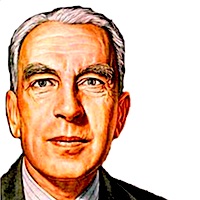
“Vulgar hedonists took in vain, and brought into disrepute, the name of Epicurus, and for this offence were chided by the austere Epicurean poet, Lucretius.”
Comments: Click to comment
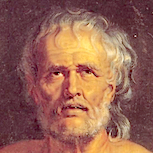
“The teachings of Epicurus are upright and holy and, if you consider them closely, austere.”
Comments: Click to comment
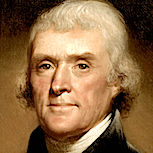
“I too am an Epicurean. I consider the genuine (not imputed) doctrines of Epicurus as containing everything rational in moral philosophy which Greece and Rome have left us.”
Comments: Click to comment
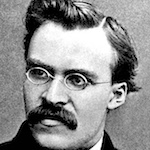
“I experience the character of Epicurus quite differently... Such happiness could be invented only by a man who was suffering continually.”
Comments: Click to comment
Comments (0)